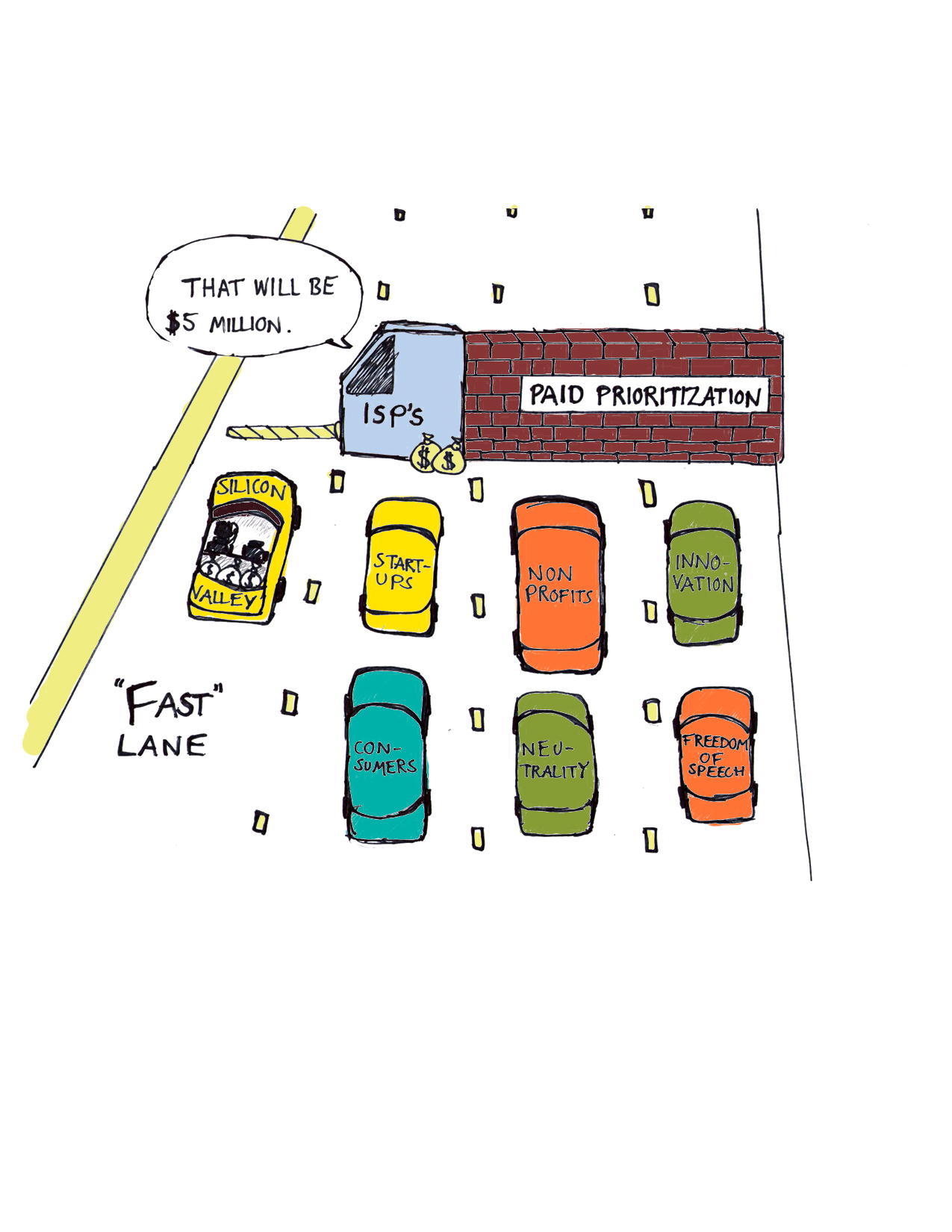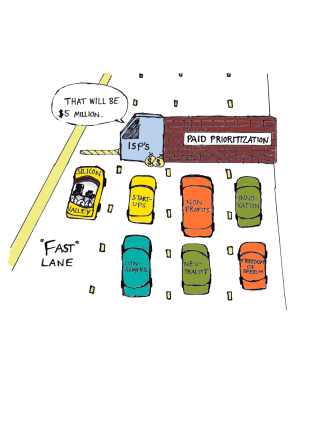
This editorial represents the unanimous opinion of all 13 Outlook Editors.
What does it take to change the internet as we know it?
Not much, if Comcast has anything to say about it. For years, the topic of net neutrality has been brewing on the political scene, and it appeared to reach a flashpoint when President Obama came out in support of preserving the status quo of the web last month.
In order to understand the political debate, one must recognize that all data transferred online is first processed through an internet service provider, or ISP. Net neutrality is the idea that ISPs such as Comcast cannot purposefully slow down or speed up this transaction.
Currently, the internet is in a state of net neutrality. Nevertheless, some have suggested abandoning this policy in favor of a “fast-lane plan” in which websites can pay fees in order to get a faster connection to consumers. Proponents claim that under this plan consumers would enjoy high speed broadband when connecting to popular websites.
Under a “fast-lane” plan, however, non-profit organizations and start-up companies would be hard-pressed to pay for prioritization. They would be relegated to a slower standard than those who are willing to pay up. This stymies the competition that has fueled the online economy since its inception.
A “fast-lane” plan would also set a dangerous precedent in which ISPs would be able to influence what information their customers see and what they don’t. Among these customers are Aragon students who have to conduct research on all corners of the internet for school projects as well as use the web for leisure time.
As it is now, the internet is a thriving information tool.The government ought to keep it that way.





i see